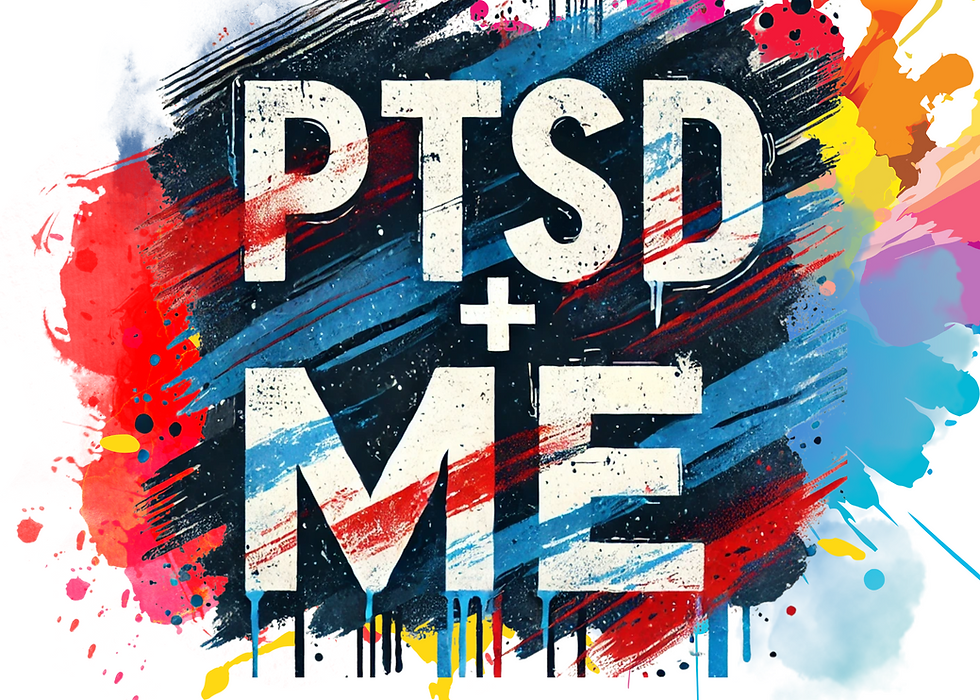Beyond Burnout: Moral Injury
- Troy Rienstra

- Apr 21, 2025
- 4 min read
The Moral Cost of Systemic Pressure
I recently came across an article that struck a deep chord with me: Beyond Burnout: Docs Decry ‘Moral Injury’ From Financial Pressures of Health Care from KFF Health News.
It challenged the way we talk about "burnout," especially in the healthcare profession.
What really stayed with me was the shift in language—from burnout to moral injury. That shift matters.
Placing Blame Where It Belongs: On Systems, Not Individuals.
Moral injury names something deeper than just stress or fatigue. It acknowledges the psychological and spiritual harm that occurs when people are forced to act in ways that contradict their core values, often because of institutions that prioritize profit, performance, or policy over human life and dignity.
That’s not just a healthcare problem. That’s trauma.
And it’s the same kind of trauma I encounter every day through my work with justice-impacted individuals, community advocacy, and the development of programs like PTSD+ME. It’s the emotional residue left behind when someone keeps showing up for a job, a role, or a mission—but can’t show up as their full self.
Whether it’s a doctor skipping a conversation about care because of insurance codes, or a returning citizen told to "reintegrate" without ever being shown how to heal from what they went through—the wound is the same.
The trauma lives in the gap between what we believe and what we’re forced to do.
What Is Moral Injury?
The term "moral injury" originated in the context of war and combat. According to psychiatrist Jonathan Shay, who first coined the term, moral injury is "a betrayal of what’s right by someone who holds legitimate authority in a high-stakes situation."
In military contexts, this could mean being ordered to do something that violates one's conscience. In civilian systems, the dynamic is the same—teachers forced to teach to a test rather than a child, healthcare workers pushed to meet quotas rather than provide care, or parole officers instructed to punish rather than support.
A 2019 study in The Journal of General Internal Medicine found that more than 1 in 3 physicians reported symptoms consistent with moral injury. These were not just feelings of being "overwhelmed," but of being complicit in a system that obstructs the very care they were trained to provide.
Now expand that perspective into education, social work, public health, law enforcement, and community justice. The harm multiplies.
Moral Injury Across Systems
Teachers: According to the National Center for Education Statistics, nearly 44% of new teachers leave the profession within 5 years. Many cite emotional exhaustion and lack of support as primary reasons—but beneath that is the disillusionment of being unable to serve students in meaningful, values-aligned ways.
Social Workers: A 2022 study in Social Work in Mental Health found that over 60% of frontline social workers experienced symptoms of moral injury. Many reported feeling ethically compromised by caseload pressures, underfunding, and administrative barriers.
Corrections & Reentry: Officers, mentors, and reentry professionals often enter their work with purpose but are quickly worn down by systemic dysfunction. A survey by the Vera Institute of Justice found that nearly 50% of correctional officers report symptoms of PTSD—not from violence, but from prolonged exposure to institutional trauma and moral dissonance.
Community Advocates & Nonprofit Workers: Even in the helping professions, moral injury is rampant. The nonprofit sector often demands overwork and self-sacrifice, yet many feel voiceless when navigating funders, bureaucracy, and systemic limitations. Passion becomes pain when impact is stifled by policy.
Burnout implies someone has nothing left to give. Moral injury suggests that people have plenty left to give, but systems force them to act in ways that go against what they believe is right.
This understanding is critical, especially in conversations around justice reform, mental health, and community healing. Because when we overlook moral injury, we inadvertently continue blaming individuals for breaking down instead of questioning the systems that are breaking them.
This is exactly why I created PTSD+ME. Through trauma-informed programming and structured emotional reflection, we help people—especially those impacted by incarceration—begin to name their trauma, recognize the moral injuries they've endured, and learn how to process, regulate, and rebuild.
We don’t start by telling people to "change their mindset." We start by saying: What happened to you matters.
Shifting the Narrative
The Trauma Report I’m building alongside PTSD+ME is more than a research tool. It’s a collective testimony. Through statewide focus groups with formerly incarcerated individuals, we’re gathering data on trauma across the timeline—before incarceration, during confinement, and throughout the reentry process.
This data isn’t just about stats. It’s about patterns. Stories. Proof that people are carrying moral injuries they’ve never had the language or space to process. This report will help policymakers, educators, and justice stakeholders understand the emotional architecture behind the systems we work in—and how to dismantle harm from the inside out.
A Call to Systems Leaders
If you're in a position of leadership—whether in healthcare, education, corrections, or advocacy—I urge you to look at moral injury not as a fringe term, but a frontline reality. Your staff, your students, your constituents, and your community are affected by it every day.
We must move beyond wellness slogans and into honest system audits. We need to start asking: Are we helping people live their values here, or forcing them to betray them?
Moral injury is not a flaw in the individual. It’s a red flag from the system. When good people start to shut down, burn out, or walk away, it’s time to stop asking, "What’s wrong with them?" and start asking, "What have we built that no longer serves what’s right?"
I believe we can do better. But it starts with naming the truth. Not just burnout. Moral injury.
Keep healing,
-Troy Rienstra
_edited.png)



Comments